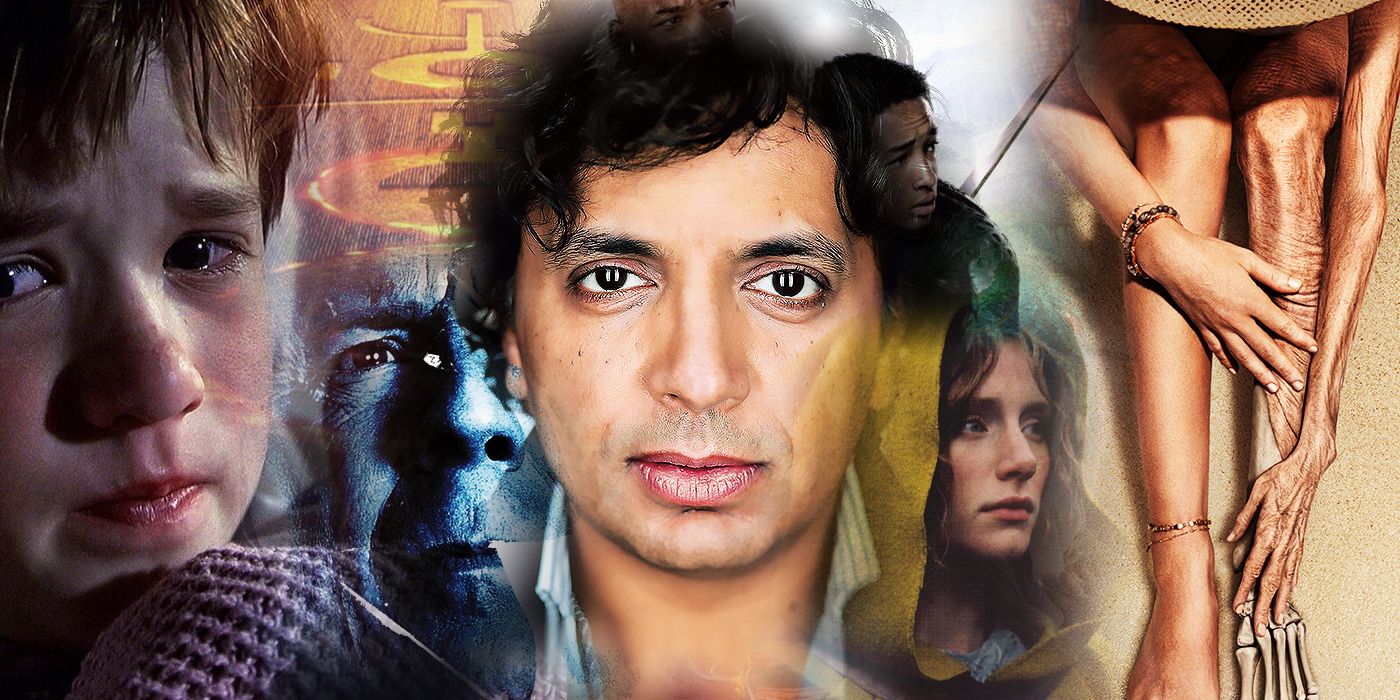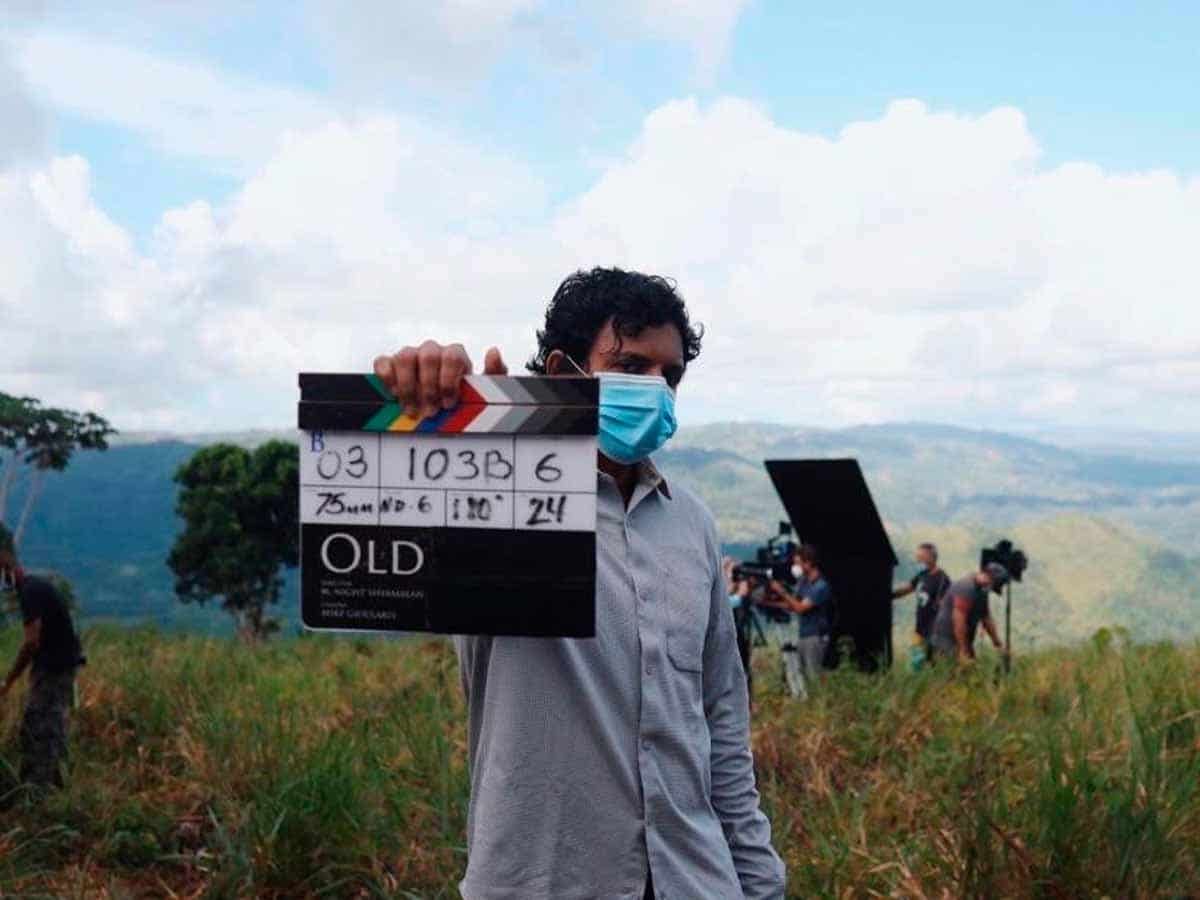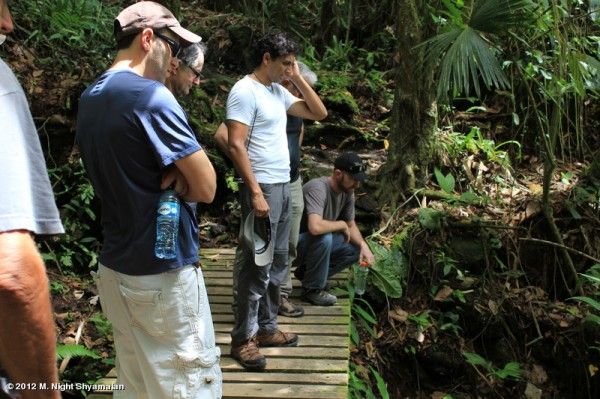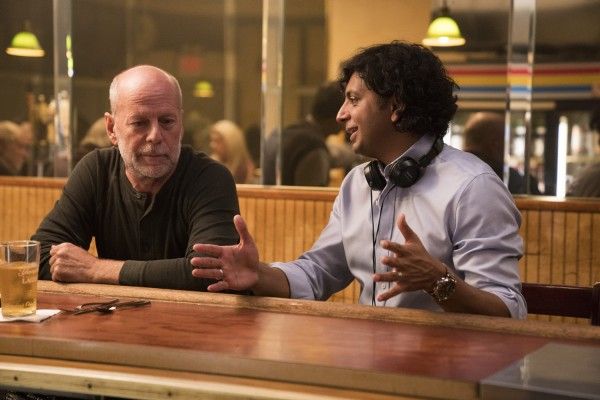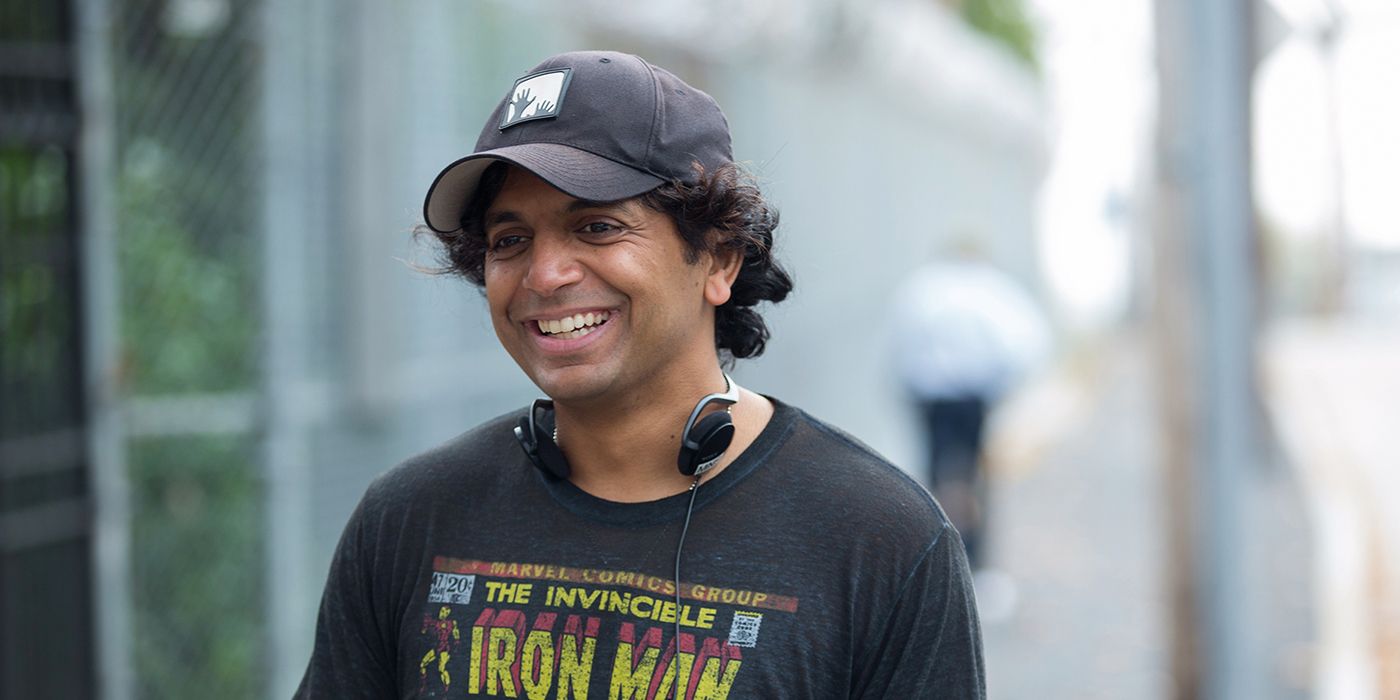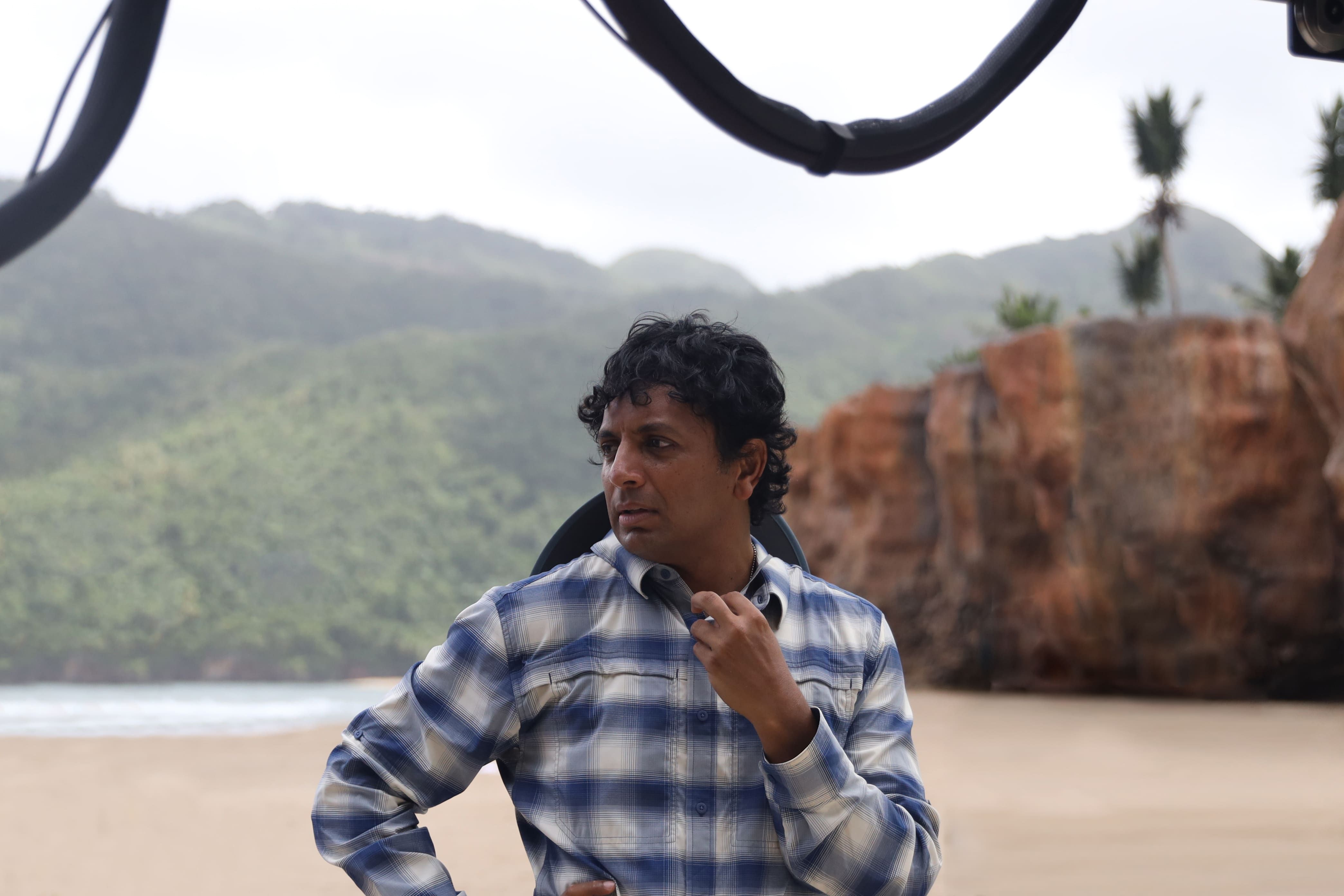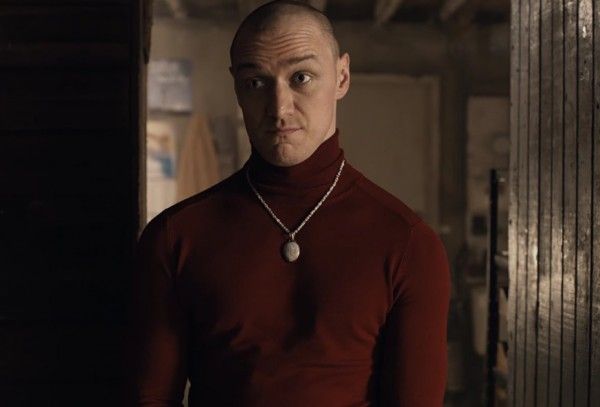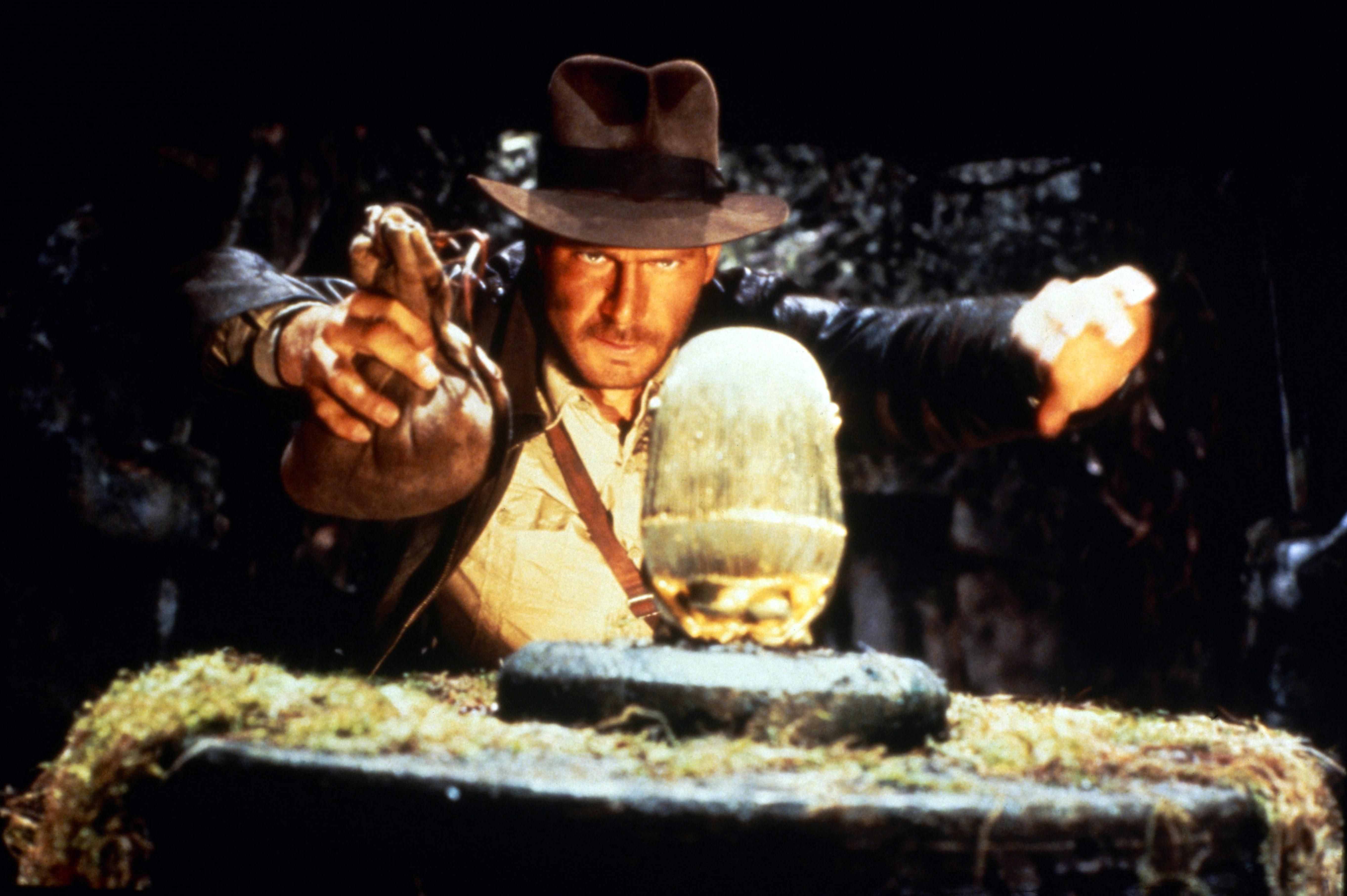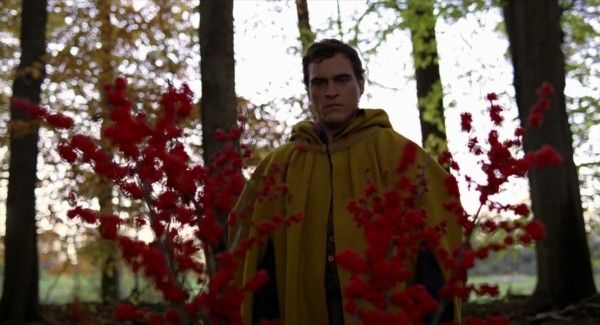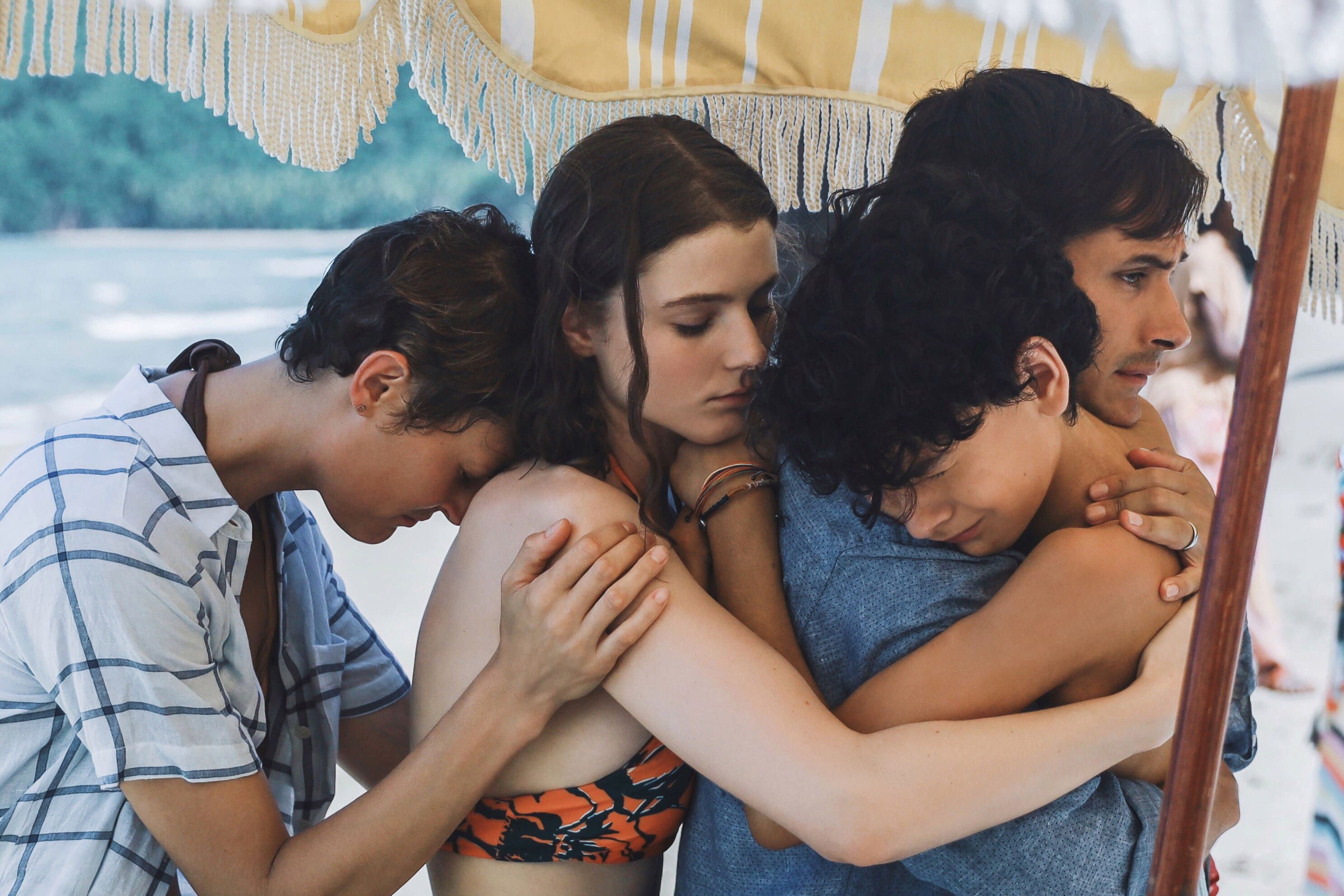With Old now playing in theaters, I recently landed an extended interview with writer-director M. Night Shyamalan about the making of his latest film and career. During the wide-ranging and very fun conversation, Shyamalan talked about his favorite movies, collecting first edition Hitchcock posters, what he’s learned during his career that he wishes he knew early on, why working with lower budgets has been his secret sauce, what happened with his Labor of Love script that was originally going to star Bruce Willis, how The Sixth Sense changed during the writing process, why Spilt has so many deleted scenes, the way he directs on set, meeting with Steven Spielberg to write the fourth Indiana Jones movie, and more. Of course, we also talked about the making of Old, how he charted the age of every actor for every scene, how he came up with the Old ending, and more.
If you’re a fan of M. Night Shyamalan I promise you’ll enjoy this conversation. You can either watch the interview above, read the transcript below, or listen/download to the audio on our podcast channel.
If you haven’t seen the trailers, Old is about a family on a tropical holiday that discover the secluded beach where they are relaxing for a few hours is somehow causing them to age rapidly. The film was inspired by the French graphic novel Sandcastle by Pierre Oscar Levy and Frederik Peeters. Old stars Gael García Bernal, Vicky Krieps, Alex Wolff, Rufus Sewell, Thomasin McKenzie, Ken Leung, Nikki Amuka-Bird, Abbey Lee, Aaron Pierre, Embeth Davidtz, Eliza Scanlen, Emun Elliott, and Kathleen Chalfant.
COLLIDER: What movie do you think you've seen the most?
SHYAMALAN: Either Raiders of the Lost Ark, or Jaws, or Silence of the Lambs. They're all fighting. We just watched Silence of the Lambs again, so it's still ticking up.
When you watch movies like that, do you ever as a director- cause I've spoken to some directors and they've talked to me, or they've mentioned that they've taken notes or they've written down shots or whatever, have you ever watched any of these films and written down something specific that you want to incorporate into something you want to do?
SHYAMALAN: I don't want to say I always take notes, but I often take notes watching movies. I just have a pad next to me. Always try to learn something. I'm very much lost in the story, but if something cinematically hits me, I'll scribble it down on the piece of paper next to me. If I'm at a certain point in the making of a movie, especially the writing, the latter stages of writing, like the last third of the writing process, I'm very careful about what I watch because that's super, super influencing me.
Do you have a favorite sci-fi or fantasy film?
SHYAMALAN: I mean, so many. When you said that I went to Alien right away, just as soon as you said that.
If you weren't writing and directing, what do you think you would have done?
SHYAMALAN: Now, I would say I would love to have opened a bookstore and have a small bookstore, but that's more of a fantasy retirement job than I guess my all my alternate career. I guess I would have been in a doctor, right? I mean, that's what my parents are, all my uncles and aunts are. I think I would have probably been odd bedside demeanor, probably telling stories to the patients, but.
Is there anything that you collect?
SHYAMALAN: Fantastic question. I do collect posters. I'm running out of wall space because I don't like to have them kind of like hidden anywhere. I have first edition Hitchcock posters in my house.
Do you have the huge ones?
SHYAMALAN: No. The one sheets. So you put them in there, all the one sheets from the original, including Rebecca, which is a very rare first edition to have of that movie, which I love that movie.
Have you posted any pictures of the posters?
SHYAMALAN: I should. I should actually. It did cross my mind that I should do that wall of those.
Yeah, absolutely. Because, I want to see them. What TV series have you watched all the way through, more than once?
SHYAMALAN: I'm wondering if that actually exists, that I did do that. I've been toying with going back to watch Sopranos from beginning to end. I've been toying with that. I mean, you're not counting Friends and The Office, right? You're not counting that, that doesn't count. That's perpetually on in everyone's house all the time. That doesn't count.
Here's the thing though, that does count because you can say, "Friends is always on," or, "The Office is always on," so that does count.
SHYAMALAN: Yeah. I think the trilogy of Seinfeld, The Office and Friends I think is on. Friends is more of my daughters and my wife that they have it on top all the time. Rachel's doing something in our house at all times.
What do you wish you knew earlier in your career that you've learned as you've made all your projects?
SHYAMALAN: Wow. What a great question. The thing that at times makes it dissonant in its immediate consumption at that moment, that thing, is not necessarily a bad thing, and oftentimes is the wonderful thing about it that makes it resonate and makes its brothers and sisters, the other films, even more seen in a stronger light.
So for example, that Signs was my biggest opening movie is because of Unbreakable, that kind of relationship of the dissonant movie to the next movie. Something that I've learned over time is, it's a very strange thing to do art and commerce together like that, and I've been so lucky to have this long relationship with the audience and the ones that has created this bond are the dissonant ones that has that, just that weird thing about them. And so, I would tell my younger self, because I tack towards that. My instinct is that to do that dissonant thing and to follow that, to just, don't worry about being the popular kid on the day.
People used to go to see a Hitchcock movie because it was a Hitchcock movie. Now people go to see a movie because of your name. When did it hit you that like, "Oh, my God, my name is actually getting people into a theater."?
SHYAMALAN: I don't think I've quite internalized that entirely. It's weird to pass a billboard or something. We went to a wedding, the first thing we did is after the pandemic, the first thing, we went to a friend's wedding, and it was in Baltimore. And, drove up, and got out of the car, come into the hotel and all the bellboys had the masks on. And they were like, "Old, Old!" And they were all yelling at it out and I'm like, wow, this is wild that they're coming, they're interested in the author.
Then, went into the Starbucks, and the guy at the Starbucks was like, "July 23rd, man, July 23rd." I was like, wow, this is, it's amazing. I take it very seriously, the relationship of the craft of it, that relationship. It's one that we have with authors of novels. It's one we have with authors of plays and it's more rare in the movie industry. Just a blessing, dude. What can I say? I mean, my movie's opening up in movie theaters in a few weeks here, and the first one that went all over the world in 1999. So it's like, man, it's amazing.
What you don't know about the story you just told me is that the employees at the hotel and at the Starbucks were all given $5 each by your wife to say these things.
SHYAMALAN: Is that right, is that right?
I just want to keep-
SHYAMALAN: By the way, it would work the other way. My wife would be like, "Here's $5 not to say..." "Just don't tell him it. Don't remind him he has..." "Here's $5. Just don't say it."
You've worked with all different budgets. And I'm curious if you find working with a lower budget is almost more... I don't know, it's easier. Not because it's less money, but because it's almost less responsibility, the people paying for the movie. And if it doesn't work, it's not the end of the world. Can you talk about what it's like working in these different budget levels?
SHYAMALAN: Yeah. I mean, for me, it's been the secret sauce, to do these four movies and make them at a very low number, the lowest I can make it for. In that relationship with my partners, I can deliver the most unique and provocative product, which I think is our weapon to be different. The more different it is, the better it is for us in the marketplace. That's my thesis. But I'm being responsible.
It's a very interesting thing. We're trying to do something anomalous, like say releasing Old in the summer. And honestly, every movie that's outs at least 10 times the cost of the movie, right? It does give me comfort, it allows me to do very provocative things, darker things. I don't have to feel like I have to play it safe. I can be very dissonant, like we were saying, and know that for the most part we're going to be okay.
We're building a relationship that the studio and I love with the audience. It's a very special thing, dude, that's going on. I don't mind doing it this way. In fact, I love it. And in fact, to other filmmakers I would say, you should make your movies for the lowest number that you can have freedom, that should be your goal. There's an equation for that. The moment you take the extra dollar, you have now committed to something other than, "I'm going to listen to these strange voices that are telling me, "Slow it down," or, "Kill this person," or, "Have this...", "Shock them in this way.""
This question I ask to a lot of filmmakers, but I think you're in a different position because I think a lot of people want to be in business with you, and if you came up with an idea, but….If you could get the financing for any dream project, what would you make and why? And I'm not sure if this question applies to you, but let's see.
SHYAMALAN: I don't know if it applies to me, because that's exactly what I'm doing. I'm trying to think. Is there a movie to finance that...
Like I said, this might be a question that doesn't apply to you because as I said, I would imagine everyone wants to be in the Night business.
SHYAMALAN: Well, you bring up an interesting thing. Say there was a big franchise movie, right, that I was like, "Wow, I'm really interested in this because it has an opportunity, but I want to do the small version of that," and that has happened. I won't say what movie, that has happened. It has crossed my mind. "Wow, I would be interested to do the $18 million version of that, if everyone was willing to do that," and it crosses my mind, but then it becomes, that particular IP is so important to that studio or that company, that risking it in that way makes no sense. Why would you try to invent it in that way?
There's actually been, I think, three of those situations where I was like, "Hey, I'll do the really down and dirty version of that," so it's the reverse a little bit. It's almost like, "Will they allow me not to take the money, and not to spend the money?" Do it in this way. But then the ramifications of that are limitations that I believe in that are positive. Let me ponder more. Maybe I can think about it. But yeah, it's weird, because that is what I'm doing, right? I'm financing these movies that wouldn't be able to be financed in the studio system, traditionally.
Do you have a lot of scripts in the desk that have never been made?
SHYAMALAN: No. I wrote one in college that I almost made at the time, and then I made the other movie for Miramax at that time, but there's only one since then that I've written that...
Are you talking Labor of Love?
SHYAMALAN: Yeah. Labor's there, there's actually two, if you add. There's one more that I have another idea for that I may make one day, so there's two.
Whatever happened with Labor of Love, I think you were going to do that with Bruce Willis?
SHYAMALAN: Yeah.
What happened with that one?
SHYAMALAN: It's emerged so many times in my career. A couple of times with Denzel. It's just a drama. It's not a thriller, it's just a drama. It's something that I wrote. It's a romance, essentially. It was the first thing that I wrote that actually brought me into the industry in a real way. It was so long ago. So, it means a lot to me. It's very emotional. At this point, it's almost a period piece, because it was set in 1993, '94. It won't make any sense now with cellphones and everything that we have, smartphones, and so you would either literally have to do it as a period piece now, from that time period. It's very meaningful to me. It almost feels like a novel or something that I wrote. Trying to know when to do it and how to do it has always been on my mind. It's a very meaningful piece.
Which of your films went through the biggest change from your first draft on the page to what people saw on screen?
SHYAMALAN: Great question. Man, let's see. My initial reaction is Sixth Sense because that was the one that started out as just a straight crime. There was no therapist, it was a serial killer movie when I first wrote it. It was a crime scene photographer, was the main character, and his child sees the victims of the serial killer. So, that was the original idea that I had in my head.
Which of your films do you think had the most deleted scenes?
SHYAMALAN: Wow. Great question. That's that one, I'd be guessing, I would be guessing at, because that's a tricky one. I'd have to see. I have all these cards for each scene when you're editing and then as they go into the graveyard, as they come out, they go into this pile that I call the graveyard that list goes. I'm thinking it's Split. I'm thinking it's Split. That had whole storylines that came out, a character that came out. The first cut of that was like three hours, so it was big.
I apologize for not knowing, but do all of your deleted scenes end up on a Blu-ray or a DVD, or there's still a lot of things in a basement somewhere?
SHYAMALAN: Not all of them end up. I'm careful not to make the analysis on the Blu-ray so forensic that you it's hard to watch the movie. So, there's a little calibration that goes on in terms of, let's say for example, there was a character that was cut out, that may or may not be okay for you to watch the movie after you knew that. I want to keep the purity of the movie as much as possible. I don't mind scenes that give you more depth into the characters, so I tend to put those kinds of scenes in the deleted scenes, not every scene that was deleted.
I believe, many years ago, you met with Spielberg about writing a fourth Indiana Jones movie. Did you ever come up with your MacGuffin and the idea, or was it more just a basic meeting?
SHYAMALAN: Oh, my God. I mean, it was fantastic. Obviously Raiders is my favorite movie of all time, and so this was a dream, to be asked as a kid to go see a movie in a movie theater and then later to be asked by that person to write one of those in the future. I could faint at that moment. It was amazing. I do have my notebooks, I still have those with all my ideas for that movie. I did have a take. I talked to everybody involved and it was so nascent at that time, that movie. Everyone hadn't gotten into a room yet. They were bouncing ideas off of me. So everyone had different ideas of what to do. When you say that, I have in my head, it's a green notebook, and I had this idea. It was a darker idea.
Every Indiana Jones movie has the MacGuffin, so had you thought about what that was yet?
SHYAMALAN: I did, I did, yeah. I had an idea. I hadn't pitched it to them or anything like that, but I had an idea.
Okay. I won't press you any further. I know that you also expressed interest many years ago in Harry Potter. Do you view that as something that got away, or were you like, "These movies are really good, it's cool."
SHYAMALAN: Oh, definitely. Our kids watched them, and we all watched them and loved them. They have almost a nostalgia about them now, an innocence about them that represented a certain time in filmmaking, I think. I find them beautiful. Obviously I know a lot of them, Rupert's now in my show, so I've always felt close to them when I met them all as kids. I was in my late twenties when I was meeting them and now they're older than I am when I met them. So it's very, it's amazing.
That is more than a job, you have to change your life. You got to move to England and change your whole life. I guess it goes right to the core of, are you making original movies or are you not? There was some really fundamental, when you're making movies of that scale and all of that stuff. Again, talking about all of this, those were early days, but talking about, what type of voice are you and what is the best way to tell those stories where your voice can be your voice? Is it in large scale movies like that? Does your imagination work that way or does it work in this almost indie way?
Roger Deakins and Steven Soderbergh are famous for very limited coverage onset. They generally have one camera set up, they're getting very limited, almost no coverage. Roger famously shot, I believe, Blade Runner 2049 and James Bond with one camera. I'm curious when you're on set, how much coverage are you trying to do? How much are you just doing the minimal coverage?
SHYAMALAN: Yeah, there's no coverage per se. We shoot everything that I drew. 99.9999% of the time, there isn't anything else that we're doing, it's just the things I drew, and that's what we're shooting, exactly in that way. When Roger and I did The Village together, we worked out the shots and that's it. That's what's there. And so, it's play-like. I'm of that mind, entirely, of the old school mentality of, make the movie in your head and go get that movie.
How do you typically like to talk to your actors before they step on set the first day? Are you giving them certain things to watch, certain things to read? What is that dynamic like?
SHYAMALAN: It varies actor to actor, project to project, but we do rehearse a lot. It's like a theater. On Old, it was a very much like a theater group. I would say to them, "Hey, think of the blocking and the movement with your relationship to the camera as dance moves and not as, "Hey, my character would do this," or, "My character would do that." This is the choreography of the movement of the camera, and how I was thinking of it in terms of your positioning in juxtaposition to others and in relationship to the camera. And when you take a step forward, we're moving this way. I see another person, her cheek comes in, all that stuff. Think of it as choreography, and then I'm going to talk you through the emotional meaning of that choreography."
Within that seeming structure, there's infinite ways to perform it. So, when it's very complicated choreography, I try to do it early so that they get comfortable with, "Hey, this is how I'm seeing it." And ones that are more fluid like, "Hey, I have a locked off frame and you can move whatever you want into the bathroom, out of the bathroom, come in." There's a scene where they're- In the movie, where they're fighting and I put a light on a bed and one in the bathroom. I was like, "Go wherever you want. These are the hit points, but you could be-" I said, "You could be entirely in the bathroom and I never see you, if you wanted to do that version of that take." So there's times where I'm like, "Your complete spontaneity is what I'm looking for."
With Old it's your first time shooting something out of Philadelphia. Will it be your last time filming something out of Philadelphia?
SHYAMALAN: I don't think so. The next few movies that I have in my head are kind of, you could shoot them on Philly. One of them takes place in a couple locations outside, but they're very contained. A lot of them could be done the traditional way, but I'm getting more comfortable with writing exterior. And then it's not Philadelphia, normally it's exterior, Philadelphia or interior building, Philadelphia. Probably cause my kids have gotten older and I feel the freedom to do that.
One of the things that's interesting about this is that you have different actors playing the same characters. Some of them, I should say. Was there ever, in your mind, like, "Do I want to make it that every 15 minutes there's going to be a different actor?" Talk about the progression, how you want it to depict that on screen and how much is it, when you have like a movie star or a star that you need to have in the movie, you have to play a little bit more like, "I need this character on screen for an hour, because they're a star and they're helping me sell the movie," versus... Does that make any sense?
SHYAMALAN: Yeah, yeah. I didn't quite think of it, but yes, yes. I didn't quite think of it like that, but there was a math equation here of making sure I wasn't looking at prosthetics the whole movie, that was critical to me. I didn't want that. I didn't want that feeling. I wanted it to be various ways of representing this movement of look and age. I remember, and even now the idea of insinuating people on the edge of frame or being behind them, I thought that was a wonderful way to be provocative with the audience to say, "Well, now the kids are older, but I'm not showing them to you, and what I wonder what they look like," and you're just getting, "Wow, their hair looks the same, but they don't quite look the same."
That movement of, can I find actors that really look like each other that are 15 years apart? That they move and they actually can feel like each other. How can we use CGI or prosthetics in very gentle, delicate way that create like, "Wow, I'm seeing them, and that's from that scene to that scene, they're slightly older." Are you catching it, or you might not catch it, that kind of thing. So we analyzed that and every actor got how old they were in every scene. They got a chart of age for every scene that they were.
I don't want to be specific because obviously I don't want to spoil anything, but this is one of those movies that could have ended in a few different places. I think the ending's great, but I'm curious how you ended up where you did because you- And again, it's hard without being specific, but there's a few places where I'm like... Was it always this ending, or did you ever have another version of it? Or a different thought of where this could end?
SHYAMALAN: It was always this ending. For me, the graphic novel, which had no ending essentially and didn't explain anything, had a few frames in it where I thought they were insinuating something. So I kept writing that version of the story of my head. I go, "Ooh, that must mean that. That image of that person over there, that must mean that there's something else going on."
For me, it was very much from the graphic novel, almost like a painting that was unfinished that they insinuating what the rest of the painting was. So that ending that you have was from that, it was from that. It was always that version. There were different rhythms of how did to convey that ending, there was various versions of conveying that ending, but it was always that ending.
Old is now playing in theaters.

